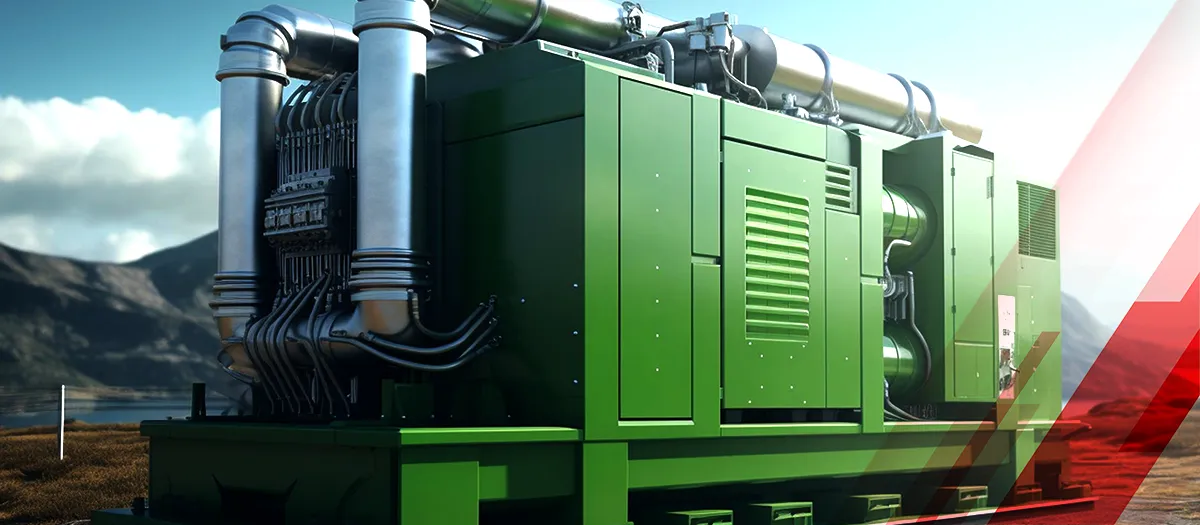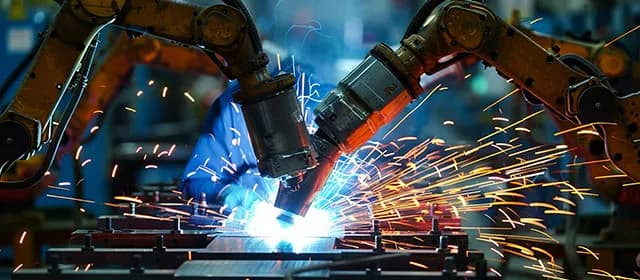A diesel generator, also known as a diesel genset, is a combination of a diesel engine and an electric generator (alternator) that works together to generate electrical energy. Diesel generators serve various purposes beyond emergency power backup. They can also function as a secondary power source for utility grids during peak periods or when there is a shortage of large power generators.
According to Kings Research, the diesel generator market is projected to hit a valuation of $22.63 billion by 2030. This article acts as a comprehensive guide on these billion-dollar generators.
What is A Diesel Generator?
A diesel generator is a type of apparatus that produces electrical energy from the chemical energy that exists in diesel fuel. It is composed of an electric generator (alternator) and a diesel engine that cooperate to produce power. The mechanical energy required to rotate the crankshaft, which produces electricity through the alternator, is supplied by the diesel engine, which is built to run on diesel fuel.
In places with restricted access to the electrical grid or during blackouts, diesel generators are frequently utilized as backup power sources. They are also used in several different applications, including power grid export, peak-lopping, and grid support. Diesel generators are flexible and respond quickly, but because of the emissions they emit during combustion, it's necessary to think about how they will affect the environment.
What is the Basic Principle of a Diesel Generator?
The basic principle is to transform the chemical energy in diesel fuel into mechanical through a diesel engine. This mechanical energy is then used to rotate a crankshaft, which drives an electric generator (alternator) to produce electrical energy. The process follows the principle of energy conversion, which states that energy cannot be created or destroyed but can only be transformed from one form to another.
The diesel engine, typically a four-stroke internal combustion engine, is responsible for converting the chemical energy in diesel fuel into mechanical energy. It does this by igniting the fuel-air mixture in the combustion chamber, creating a controlled explosion that drives the piston down. This reciprocating motion of the piston is transmitted to the crankshaft, which converts it into rotary motion.
The rotating crankshaft is connected to the rotor of the electric generator (alternator). As the crankshaft rotates, it induces a magnetic field in the stator of the alternator through electromagnetic induction. This interaction between the magnetic field and the conductive coils in the stator generates an alternating current (AC) in the output terminals of the generator.
The electrical energy produced by the alternator can be used to power various electrical devices and systems. Diesel generators are commonly used as backup power sources in situations where access to the electrical grid is limited or during power outages. They can also be used in applications such as grid support, peak-lopping, and power grid export.
Is A Diesel Generator AC or DC?
Depending on its construction and intended usage, a diesel generator can run on direct current (DC) or alternating current (AC). Nonetheless, AC generators make up the bulk of diesel generators. Alternating current, which is produced by AC generators, occasionally changes direction. In homes, offices, and industrial settings, this kind of current is frequently utilized to power electrical equipment and gadgets. The electromagnetic induction theory, which states that a rotating coil or rotating magnetic field can generate an alternating current in a stationary coil, is the foundation upon which AC generators operate.
Advantages of Diesel Generator
- Fuel Efficiency: It offers high fuel efficiency, providing more power output per unit of fuel consumed compared to gasoline or natural gas generators.
- Durability and Reliability: Built to be robust, these generators are suitable for demanding environments and continuous operation. They boast a long lifespan and can withstand heavy loads and harsh conditions.
- Lower Operating Costs: Diesel fuel is typically less expensive than gasoline or natural gas, resulting in lower operating costs over time. Moreover, diesel engines require less maintenance, reducing maintenance and repair expenses.
- High Power Output: Generators can produce a higher power output compared to generators of the same size running on other fuels, making them suitable for industrial operations or backup power for large facilities. These are often used in rural areas for electric supply.
- Versatility and Flexibility: It finds applications in various settings, from residential backup power to industrial environments. They can operate in different conditions and integrate easily into existing electrical systems.
- Availability and Accessibility: Diesel fuel is widely available, ensuring a reliable fuel supply for diesel generators and making it easier to source and replenish compared to other fuels.
- Safety: Diesel fuel is less flammable than gasoline, enhancing the safety aspect of diesel generators. Additionally, diesel generators are equipped with safety features to prevent accidents and ensure proper operation.
Decoding the Impact of Diesel Generators on the Environment
Here are some key points to consider:
- Emissions: It emits pollutants such as carbon dioxide (CO2), nitrogen oxides (NOx), particulate matter (PM), and sulfur dioxide (SO2) during operation. These emissions contribute to air pollution and can have adverse effects on human health and the environment.
- Carbon Footprint: They have a higher carbon footprint compared to some other generator types. The combustion of diesel fuel releases CO2, a greenhouse gas that contributes to climate change. However, advancements in technology have led to the development of cleaner diesel fuels and more efficient engines, reducing the carbon footprint of diesel generators.
- Fuel Efficiency: They are known for their fuel efficiency, which means they can generate more power output per unit of fuel consumed. This efficiency helps to reduce fuel consumption and, consequently, the environmental impact associated with fuel extraction, transportation, and combustion.
- Noise Pollution: These generators can produce noise pollution, especially in residential areas or quiet environments. However, modern diesel generators are designed with noise reduction features to minimize their impact.
- Regulations and Standards: Governments and environmental agencies have implemented regulations and standards to control emissions from generators. These regulations aim to limit the environmental impact of diesel generators by setting emission limits and promoting the use of cleaner technologies.
- Alternative Energy Sources: The environmental impact of generators has led to a growing interest in alternative energy sources, such as solar power, wind power, and natural gas generators. These sources offer cleaner and renewable energy options that can help reduce dependence on generators and mitigate their environmental impact.
End Note
Diesel generators have proven to be a reliable and efficient source of power in various applications. Their fuel efficiency, durability, and high power output make them a popular choice for backup power and remote locations. However, it is essential to consider the environmental impact of these generators, including emissions and noise pollution. Stricter regulations and advancements in technology have helped mitigate these concerns, with cleaner fuels and improved engine designs.




